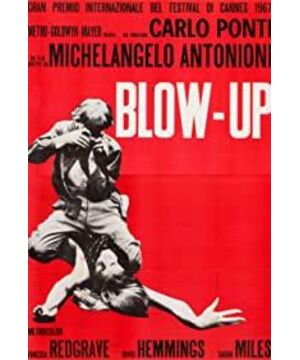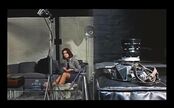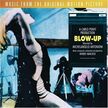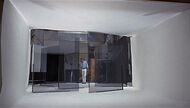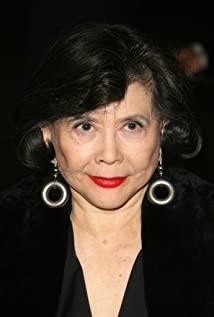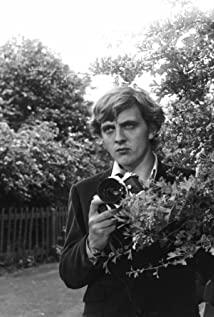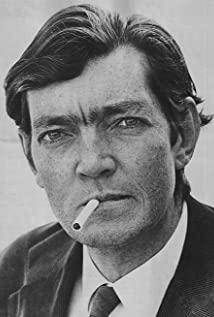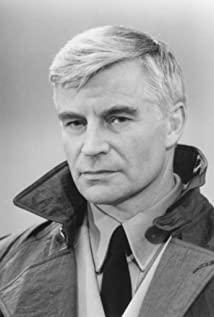What is the line between truth and fantasy?
Can our senses help us understand the world?
The film "Zoom in" asks us questions through a photographer's point of view.
(1) Interpretation of "truth"
I saw a letter on the Internet from the gray-haired lover who played the "corpse" in the film. He asked an interesting question at the beginning of the letter:
"How much of a film's artistic achievement is intentional and how much is accidental in its final version?"
According to him, the original plot should have had the heroine and her new lover plotting to kill the old lover together. However, due to limited funds, the filming was cancelled.
Therefore, on the one hand, it shows that the murdered people do exist, and on the other hand, due to the forced deletion of the storyline, it increases the mystery of the plot.
How much of artistic achievement is intentional, and how much is accidental?
We can say that the film is made up of many disorganized shots. This is the director's shooting method. All the absurd things do not need any explanation because the absurdity is so real;
But on the other hand, it can also be said that the director did not finish what he wanted to shoot because of limited funds, so he had to do it on purpose. But in addition to deliberately doing it, you can get products that exceed expectations.
No matter what kind of interpretation it is, it can finally be combined with the questioning of the real world, the questioning of the boundary between truth and fantasy, and whether the senses can help us understand the world.
Yes, it's a question mark.
Because the director didn't tell us the truth about the murder, nor did he tell us how the large messy plot in the film was arranged.
Because the real understanding requires each audience to experience it for themselves after watching the movie.
Just like the fragmented era in the film, full of rock music, drugs, indifference, and illusions, everything happened inexplicably, but it was taken for granted.
The real world is like this, you have no way to predict the occurrence of events,
Many things happen suddenly, and many times there is no way to choose and decide the development of events.
(2) Blind followers
Photographer Thomas was driving a car on the street and saw the heroine in a trance. Just when he got out of the car to chase, the heroine disappeared, so Thomas accidentally broke into a rock scene during the pursuit. The band members and the audience on stage were expressionless and lifeless. The guitarist suddenly smashed the guitar and threw the headstock into the crowd.
The crowd ignited the instant the headstock was thrown off the stage.
So Thomas became a follower. He didn't have to be so desperate to grab the headstock, just because everyone else did.
When Thomas broke through the siege and ran out of the room with the headstock, the headstock was meaningless, and it was left on the street without anyone caring about it.
The meaning of the headstock only exists in the moment of grabbing.
One second can be the focus, and the next second can be ignored. Cruel and true metaphor.
All of this happens because of the influence of the environment. Under the influence of the environment, we will unconsciously turn ourselves into marionettes.
The reason why Thomas is fighting for the headstock in the crowd is not because of his love, he just follows blindly, just like us in real life.
It was the environment that gave the headstock meaning, and the collective that made Thomas a follower and lost his sense of self.
In many cases, our self-awareness is not determined by ourselves, but given by the environment. It's just that we don't know it.
If we all become followers of the collective, then where is the value of the existence of self-consciousness?
(3) What is the line between truth and fantasy?
The scene at the end of the film is the one that I think gives the most a sense of being in the head. On the way to watching the movie, I also saw this before I began to really think about it.
Or the group of hippies at the beginning. A group of people who were originally very noisy, but silently performed a mime in an instant - playing tennis without real objects.
Obviously there is no ball, but the other hippies follow the tennis ball in the "fantasy", and then the camera also shakes with the "phantom", until Thomas's eyes start to follow the tennis ball that does not exist.
One of the hippies asked Thomas to pick up the "tennis", and Thomas did. He even heard the racket hitting the ball, and his hearing began to assimilate.
Like the sound of tennis balls he heard when he first came to this quiet lawn in the film.
It's just that it was a real voice before, but this time it's a fantasy voice.
Once again he became a follower.
Following the final shot of the sound film, Thomas disappears into the lawn.
His eyes at the end of the film are like doubting the boundary and meaning between truth and fantasy.
It all goes back to the question the director threw us:
What is the line between truth and fantasy?
Can our senses help us understand the world?
A good film brings us not only the sensory feelings of the moment, but the aftertaste and reflection of the future.
And this level of deep thinking is what we think and get, and it is also our greatest gain.
?
Written by / A Baboon Who Is Always Bloody
Public account / Guo Dabo
Soundtrack / Photograph by Ed Sheeran-X (Deluxe Edition)
▲ May you have a good mood today too~
View more about Blow-Up reviews


